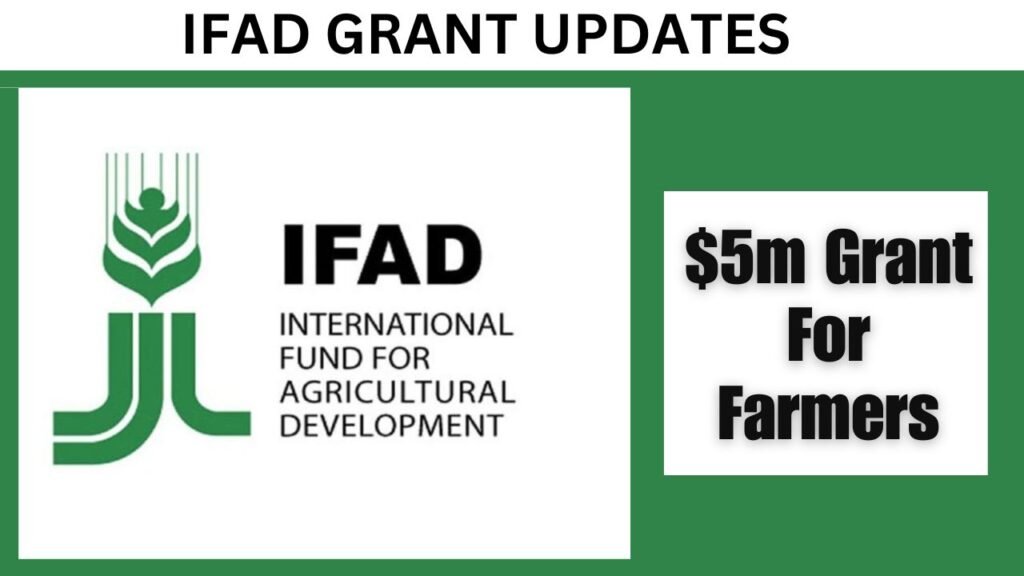Understanding the Delay in IFAD’s $5 Million Grant for Nigerian Farmers.

Introduction
Nigerian farmers, grappling with climate challenges, are anticipating financial assistance promised by the International Fund for Agricultural Development (IFAD).
However, the release of the $5 million grant intended to support smallholder farmers is experiencing delays. Let’s delve into the details of this delay and its implications.
What is the Grant About?
The Adaptation for Smallholder Agriculture Programme (ASAP) grant targets small-scale farmers participating in the Value Chain Development Project (VCDP). These farmers face the brunt of climate change effects, including erratic weather patterns, droughts, and floods, severely impacting agricultural productivity and livelihoods. The ASAP grant aims to provide vital financial resources to help farmers adapt to these environmental changes.
Purposes of the Grant:
- Investing in Drought-Resistant Crops: Facilitating the cultivation of crops resilient to drier conditions to ensure a stable harvest.
- Adopting Water Conservation Techniques: Promoting techniques like rainwater harvesting and drip irrigation to enhance water efficiency, crucial during droughts.
- Diversifying Income Sources: Enabling farmers to explore alternative income streams beyond traditional crops, creating a safety net during poor harvests.
Reasons for the Delay
Dr. Donal Brown, Associate Vice President of IFAD, cited management issues on the Nigerian government’s part as the primary cause of the delay. These issues need resolution before the grant can be disbursed.
Potential Management Issues:
- Project Management Inefficiencies: Gaps or inefficiencies in overseeing and implementing the VCDP, leading to delays in resource distribution, inadequate farmer training, or a lack of monitoring systems.
- Counterpart Funding Shortfalls: Some participating states might be failing to meet their financial commitments to the project, creating a funding gap and impeding project progress.
Status of Other IFAD Projects in Nigeria
While delays persist in the ASAP grant release, ongoing projects like the VCDP Additional Financing (AF) and Livelihood Improvement Family Enterprise – Niger Delta (LIFE-ND) have shown success. However, government-requested extensions may hinge on addressing identified issues, including those causing delays in the ASAP grant.
Implications for Farmers
The delay in the ASAP grant release poses a temporary setback for farmers relying on support for climate change adaptation. It’s imperative for the Nigerian government and IFAD to collaborate effectively to resolve these management issues promptly.
FAQs
Q: When will the $5 million grant be released?
A: The release depends on the Nigerian government addressing the management issues identified by IFAD.
Q: Who can benefit from the ASAP grant?
A: Smallholder farmers participating in the VCDP program are eligible for support from the ASAP grant.
Q: What challenges do farmers face due to climate change?
A: Climate change brings erratic rainfall patterns, droughts, floods, and extreme weather events, significantly impacting agricultural productivity and livelihoods.
Q: What can farmers do to adapt to climate change?
A: Strategies include using drought-resistant crops, water conservation techniques, and diversifying income sources.
Q: Where can I find more information about IFAD projects in Nigeria?
A: You can visit the IFAD website or contact their Nigeria Country Office for updates on projects.
Conclusion
Though the IFAD grant delay poses challenges, it also presents opportunities for improvement. Collaborative efforts to address management issues and invest in long-term solutions can pave the way for a more resilient agricultural sector in Nigeria, better equipped to withstand the impacts of climate change.




















